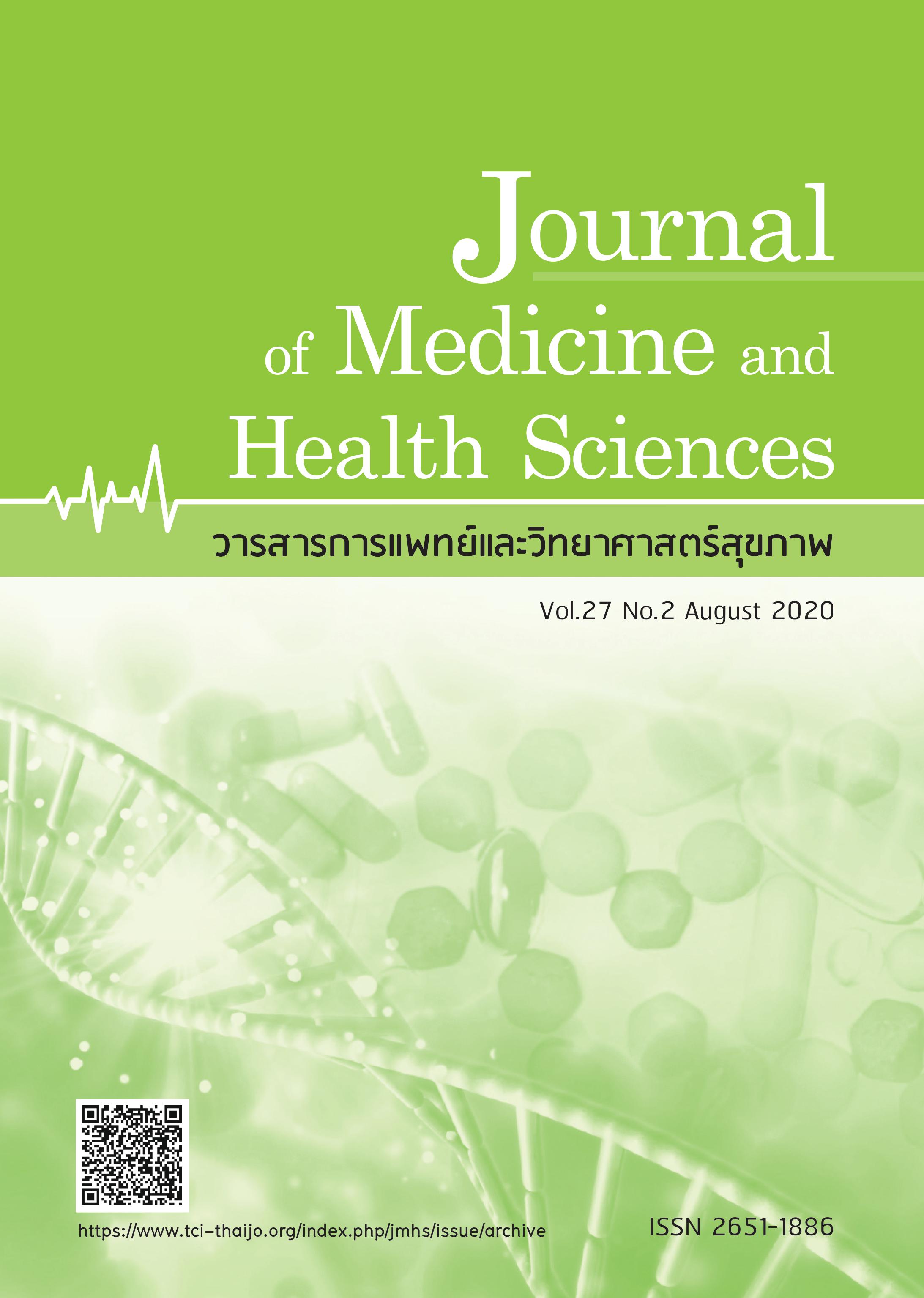Evidence-based medicine behavior and attitude in teaching medical students in clinical years
Keywords:
behavior, attitude, evidence based medicine, clinical instructors, medical schoolAbstract
The study aimed to evaluate behavior and attitude of Evidence-based medicine (EBM) use in teaching medical students among clinical instructors at medical school of Thammasat University. This cross-sectional survey was performed among 178 clinical instructors working in major departments including Obstetrics-Gynecology, Surgery, Medicine and Pediatrics and in other departments beyond the major departments. The self-administered questionnaire containing 5-point frequency scale items related to use of EBM in teaching medical student was utilized in this study. The results found that there were 102 of 178 participants completing the questionnaire. The staffs recognized and had positive attitudes toward EBM in teaching medical students. The staffs from major departments performed MEDLINE/other database search to answer clinical questions (p=0.003) and also encouraged medical students to perform literature search (p<0.001) more than those in the other departments. In conclusion, most clinical staffs integrated EBM in teaching medical students in clinical years with positive attitudes toward EBM. Those from the major departments used EBM more often than those from the other departments.
References
Sackett DL, Straus SE, Richardson WS, et al. Evidence-based medicine 2ed. How to practice and teach EBM. Toronto, Canada: Churchill Livingstone; 2000.
Fletcher RH, Fletcher SW, Wagner EH. Clinical epidemiology - The essentials. 2ed Baltimore, Md: Lippincott Williams& Wilkins; 1996.
Sackett DL, Rosenberg WM, Gray JA, et al. Evidence based medicine: What it is and what it isn’t. BMJ 1996;312(7023):71-2.
Straus SE, McAlister FA. Evidence-based medicine: a commentary on common criticisms. CMAJ 2000;163:837-41. 5. Hatala R, Guyatt G. Evaluating the teaching of Evidence-based medicine. JAMA 2002;288:1110-2.
Beasley BW, Woolley DC. Evidence-based medicine knowledge, attitudes, and skills of community faculty. J Gen Intern Med 2002;17(8):632-9.
Amin Z, Aw M, Soo R, et al. Attitudes, practice and educational preferencestowards Evidence-based medicine among physicians in a large teaching hospital. Med Educ Online 2007;12(1):4464.
Al-Kubaisi NJ, Al-Dahnaim LA, Salama RE. Knowledge, attitudes and practices of primary health care physicians towards evidence-based medicine in Doha, Qatar. East Mediterr Health J 2010;16(11): 1189-97.
Alshehri AA, Al-Khowailed MS, Alnuaymah FM, et al. Knowledge, attitude, and practice toward Evidence-based medicine among hospital physicians in Qassim Region, Saudi Arabia. Int J Health Sci
(Qassim) 2018;12(2):9-15.
Albarqouni L, Elessi K. Awareness, attitudes and knowledge about Evidence based medicine among doctors in Gaza: a cross sectional survey. East Mediterr Health J 2017;23(9):626-31.



